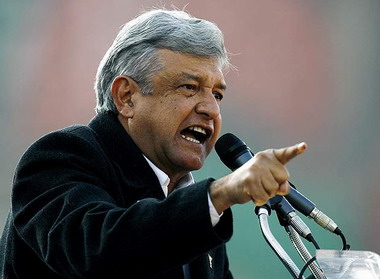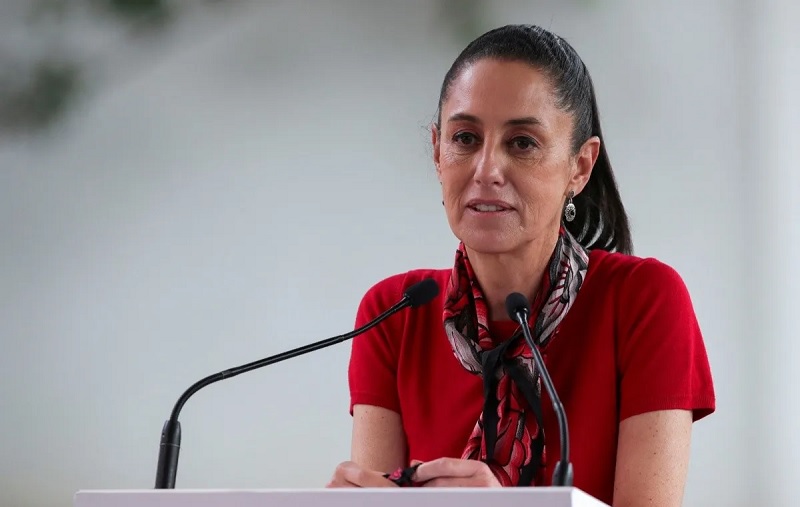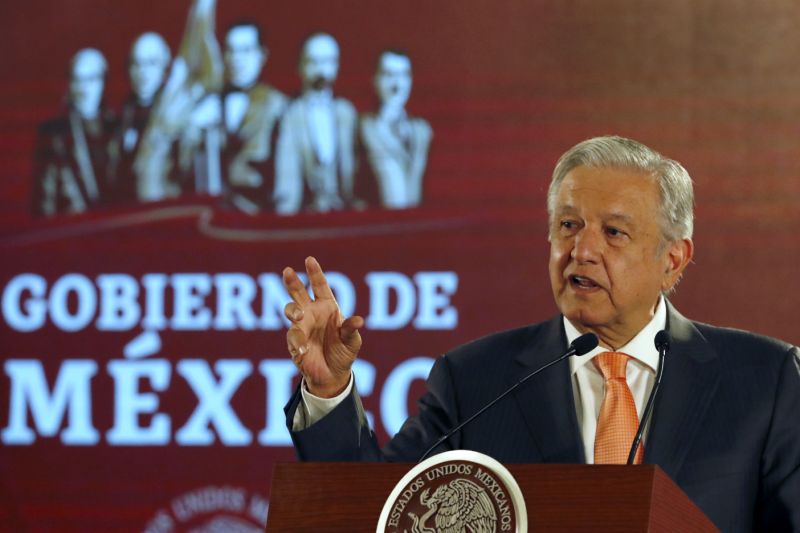In the 1980s, the United States could threaten to close the border any time the Mexican government displeased Washington. But those days are over. U.S. appliance, auto parts, and automotive factories have moved to Mexico, and they need daily shipments of parts.
As López Obrador put it, “They couldn’t last, maybe a day, but not a week” with a closed border. Mexico — not China — is now the United States’ biggest trading partner and U.S. markets rely on Mexico for fresh produce and many other things. The economic relationship may now simply be “too big to fail.”
Mexico also depends on the money sent home by citizens living abroad — mostly in the United States. Last year, Mexican migrants sent home a record US$63.3 billion. Income from remittances surpasses what Mexico earns from tourism and exports of oil and most manufactured goods.

WILL MEXICO’S VOTE SHOW A NEW LATIN POPULISM?
Latin America has seen periodic swings from left to right for decades. Free-spending presidents friendly to Iran or Russia have been quickly replaced by neoconservatives, and vice versa.
A populist wave appears to have interrupted the region’s normal pendulum swings with two key events in recent months — the overwhelming reelection of El Salvador’s hardline president Nayib Bukele, and the victory for libertarian firebrand Javier Milei in Argentina.
A victory for Morena on June 2 could entrench populism for 12 years in Mexico, essentially reviving the old idea of a charismatic, nationalist, hand-out regime as the perennial party in power.
Hungary has kept its populist president in power for nearly 15 years, but the world record is held by Mexico’s old ruling Institutional Revolutionary Party, or PRI, which held the presidency for — wait for it — 71 uninterrupted years.

WILL MEXICAN DEMOCRACY SURVIVE?
López Obrador has tried mightily to eliminate checks and balances, regulatory oversight, and the role of non-governmental organizations. He has accumulated more centralized power than any president since the heyday of the PRI in the 1970s, an era for which he expresses open nostalgia.
His main tool of governance has been the army, which has built a portfolio of railways, an airline, airports, and hotels. Mexico’s army, unlike many other Latin American nations, has not become involved in politics through coups or candidacies since the 1940s. But many worry that the Morena party’s continued dominance might endanger that old arrangement.
Whoever wins, the outgoing president is leaving a pile of ambitious, unfinished projects, obligations and debt. López Obrador has pledged to retire entirely from politics after he leaves office, but few people believe that a man who has basically spent every waking minute for the last 30 years driving toward his political goals will give that up so easily.
San Miguel Times
Newsroom

